As a parent in South Africa, you can expect contrasting levels of healthcare for your little ones. Top-quality children’s healthcare is available throughout the country, along with excellent doctors and hospitals. However, it is expensive and largely limited to the private sector. As a result, most expats choose to take out private health insurance so they can receive the best healthcare available.
To help you understand more about what you and your children can expect from the healthcare system in South Africa, this article covers the following topics:
- An overview of children’s healthcare in South Africa
- How to access healthcare for your child in South Africa
- Taking your child to see a pediatrician in South Africa
- Taking your child to see a doctor or specialist in South Africa
- Children’s hospitals in South Africa
- Dental care for children in South Africa
- Children’s mental healthcare in South Africa
- Preventative healthcare for children in South Africa
- Useful resources
Cigna Global
Enjoy peace of mind while living in South Africa with Cigna Global’s long-term international health insurance plans (12+ months). Get tailored coverage, direct billing with many providers, complex case management, and global care on demand, with access to a network of 1.5+ million doctors, specialists, and therapists.
An overview of children’s healthcare in South Africa
The South African Constitution guarantees children’s right to basic health care services, which should be available, accessible, acceptable, and of good quality. The National Department of Health administers healthcare in South Africa, and the private and public healthcare systems operate in parallel.
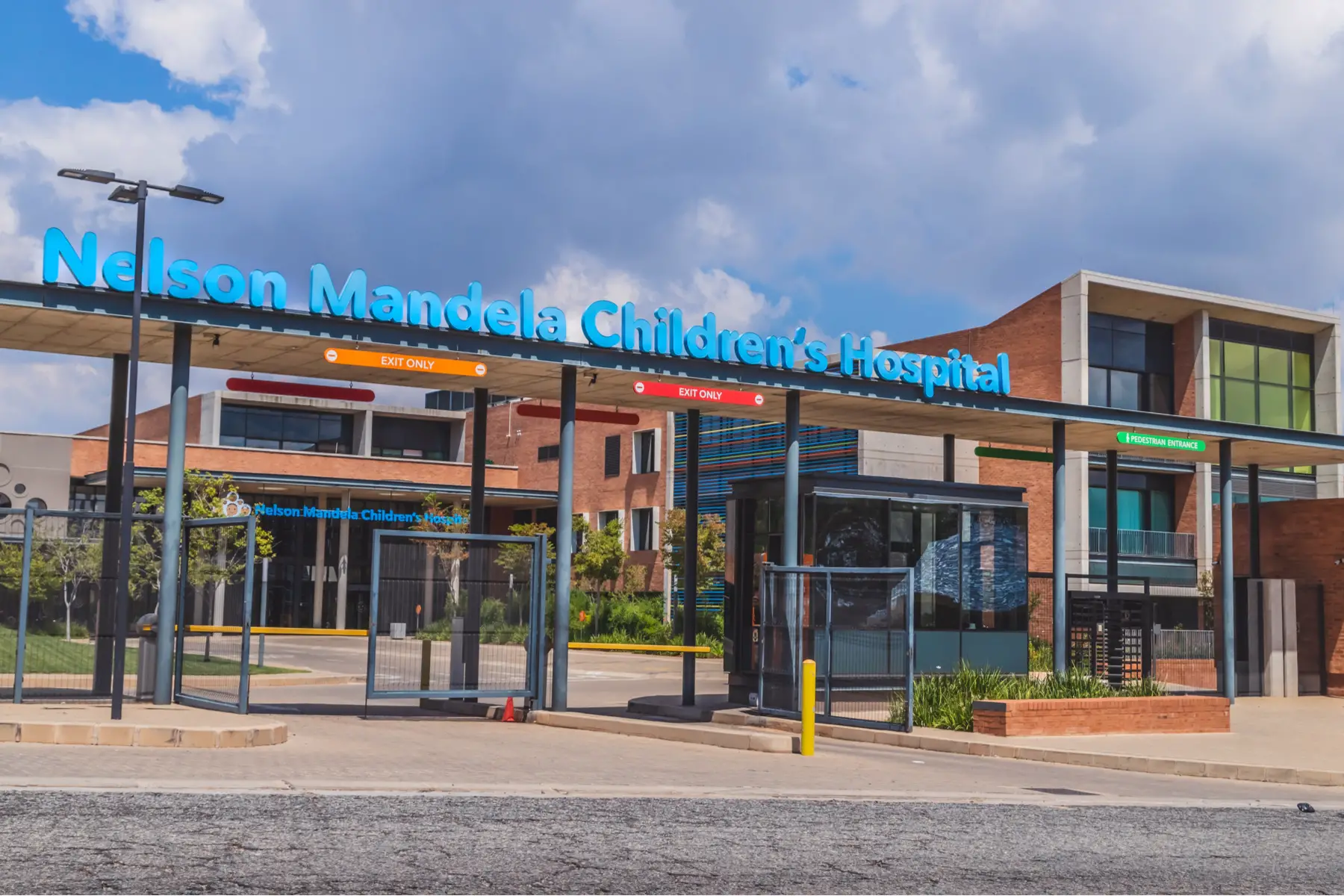
South Africa has the best hospitals and medical infrastructure in southern Africa. In fact, according to the 2020 Global Healthcare Index, its healthcare system ranks 49th out of 89 countries. Major urban areas have many excellent private hospitals and medical practitioners to choose from.
The private sector accounts for more than 50% of the country’s total healthcare spend, while providing care to just 16% of the population. This is partly due to the relatively high cost of private sector healthcare and high levels of income inequality. The public sector services the remainder of the population; a large proportion of which access fee-free primary care delivered through nurse-led clinics.
South Africa’s healthcare system, which will have an impact on children’s healthcare, is in the process of undergoing a major shift. In 2017, a National Health Insurance (NHI) was gazetted to address the challenges in the South African healthcare system, within both the public and private sectors. It aims to provide essential quality healthcare to all citizens and long-term residents of South Africa. This includes children, regardless of their financial status.
It is currently rolled out in 10 pilot districts; including OR Tambo (Eastern Cape), Gert Sibande (Mpumalanga), Vhembe (Limpopo), Pixley ka Seme (Northern Cape), Eden (Western Cape), Dr Kenneth Kaunda (North West), Thabo Mofutsanyane (Free State), and Tshwane (Gauteng). General taxation will finance the NHI.
How to access healthcare for your child in South Africa
Everyone can access public healthcare in South Africa. However, it primarily serves those who cannot afford to take out private health insurance. Most expat residents take out private insurance so they can receive the best care.
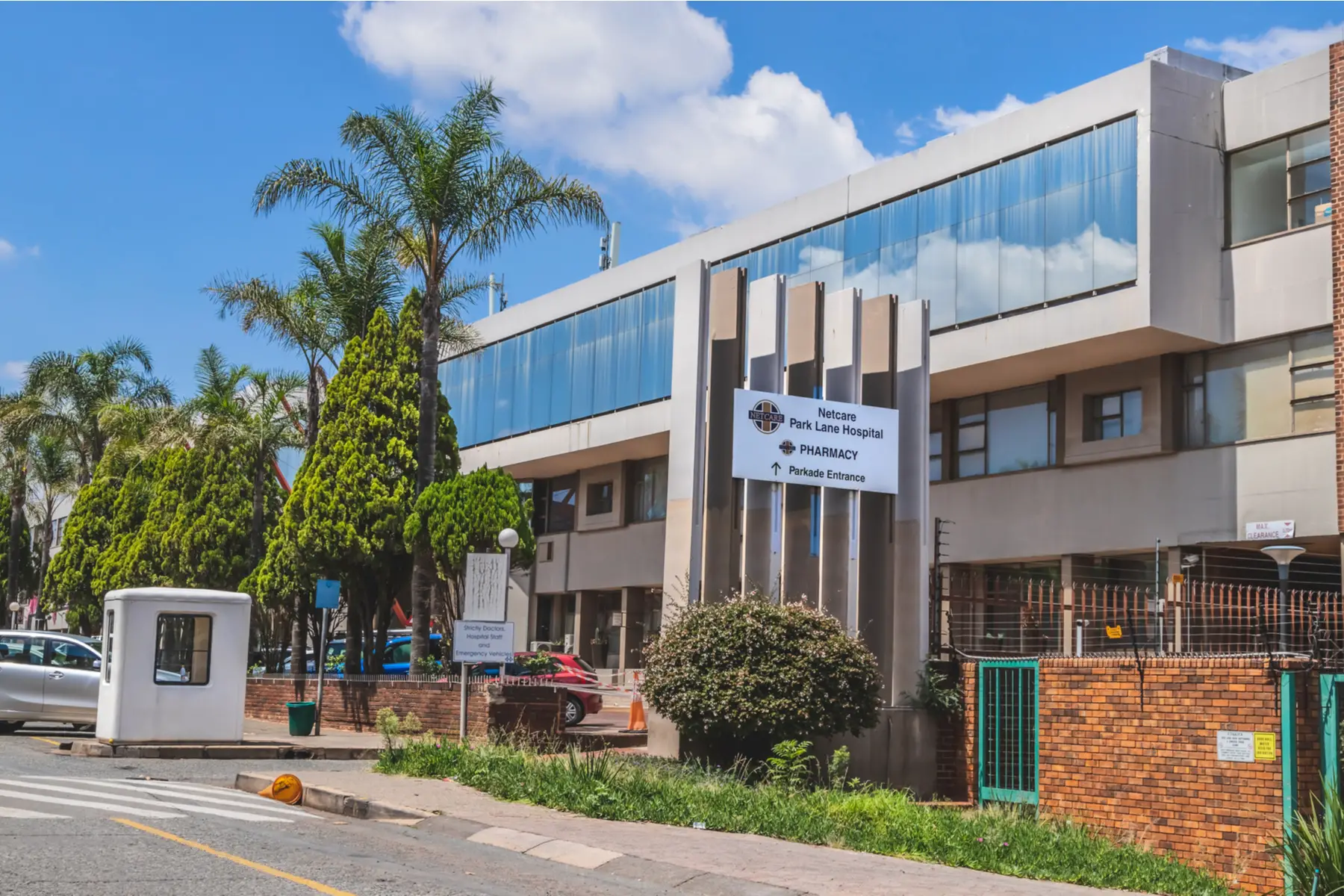
There are several well-established private hospital chains in South Africa that offer a high standard of care. Expats can expect up-to-date equipment in comfortable facilities, with well-trained, English-speaking staff. However, hospital stays are expensive, so it’s important to have good insurance. In fact, private healthcare, in general, is costly. Therefore, it is advisable for expats to make use of private health insurance by signing up with a medical aid scheme.
As of August 2021, there are over 80 medical schemes in South Africa, with over eight million beneficiaries. Needless to say, parents are spoilt for choice when it comes to finding one that meets their family’s healthcare requirements. That said, these medical aid schemes don’t allow children under the age of 18 to be the main members of a medical aid policy. Instead, they are dependent on their parent’s scheme which covers their health-related expenses. However, children are not automatically covered for free under their parents’ policies and usually incur their own premiums.
Some of the largest private health insurance companies in South Africa include:
Treatment available for children in South Africa
The General Practitioner (GP) is the first port of call for day-to-day ailments. They may refer patients to a specialist if necessary, although it is possible to go directly to a specialist without a referral.
In the private sector, you can register your child with a local GP once you have your medical insurance in place. Naturally, coverage will depend on the nature of your medical insurance. In the public sector, however, children’s healthcare is free, and part of the broader free healthcare offered at clinics, community health centers, and hospitals. The only exceptions are children and women who are covered by medical aid or medical insurance, and/or those who live in households that earn more than R100,000 per year.
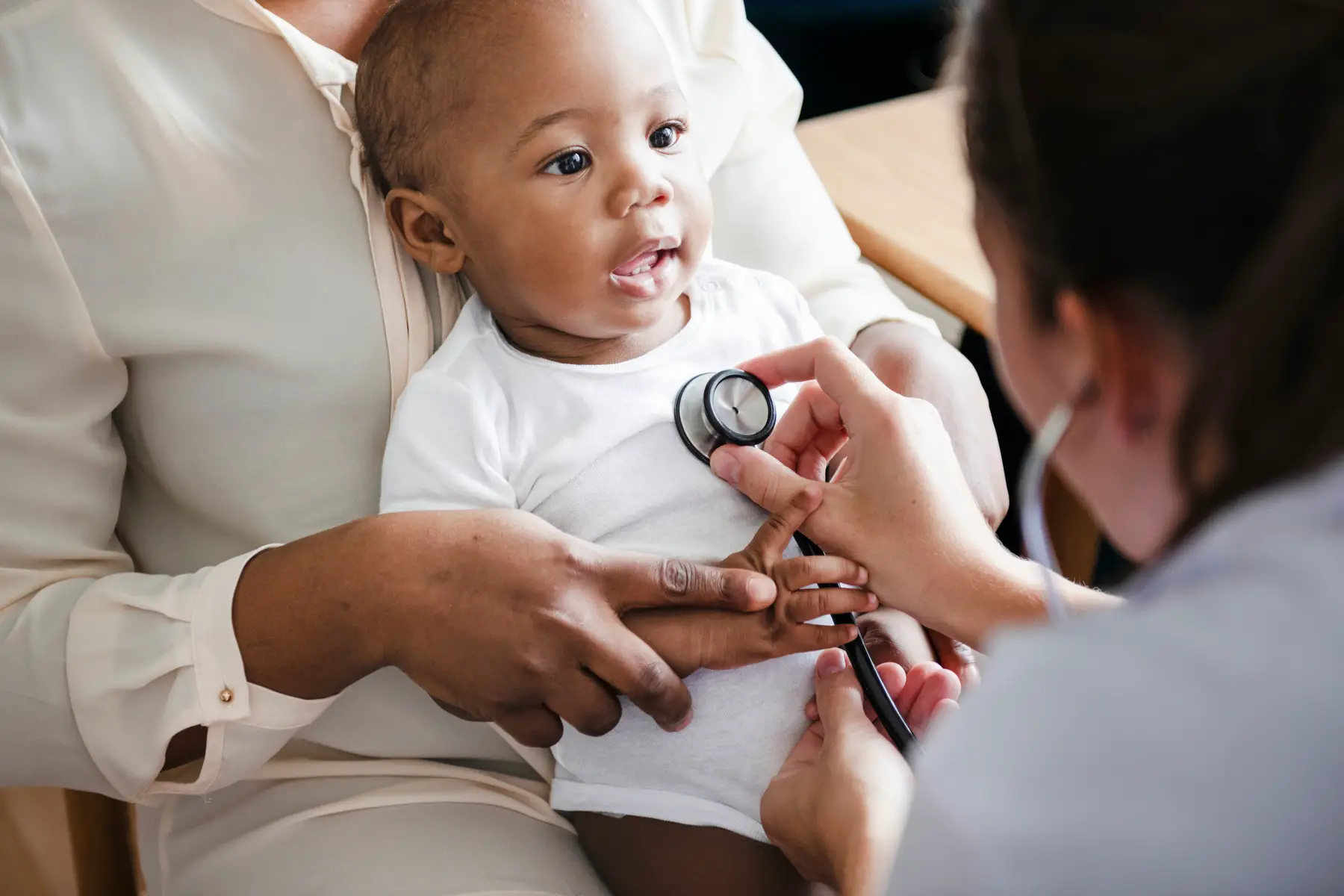
Notably, the only type of public sector facility where some payment must be made is public hospitals. The amount that must be paid for hospital services is determined according to a sliding scale, which is based on the annual family income.
The groups that have to pay for public sector hospital services include adults, children older than six who do not have disabilities, anyone who is covered by medical aid or medical insurance, and/or who lives in households that earn more than R100,000 per year.
Accessing treatment for non-residents of South Africa
Refugees, asylum seekers, and undocumented migrants who are from Southern African Development Community (SADC) member states and need hospital care are treated like South African citizens. This means that they will have to take the means test given to South Africans to determine how much they have to pay for hospital care.
On the other hand, undocumented people from countries outside SADC who attend hospitals – except pregnant or breastfeeding women, children under six, and women seeking an abortion – must pay the full fees as laid out in the national schedule.
Private healthcare for children in South Africa
If you are looking at adding your child or newborn to your medical aid plan, there are certain benefits that are good to have in place. Ideally, you would like to have comprehensive in-hospital cover in case of medical emergencies, day-to-day cover for pediatrician visits and medication, as well as basic dentistry and optometry. In this case, it is best to look for the best benefits at the lowest price, without compromising quality.
As soon as your baby is born, he or she is eligible to be added as your dependant to your medical aid. They will then be covered immediately. To make sure your baby is covered without any waiting periods, medical schemes can request that the baby be added within 30 days of its birth. If you add your baby after this time, your child may be subject to waiting periods.
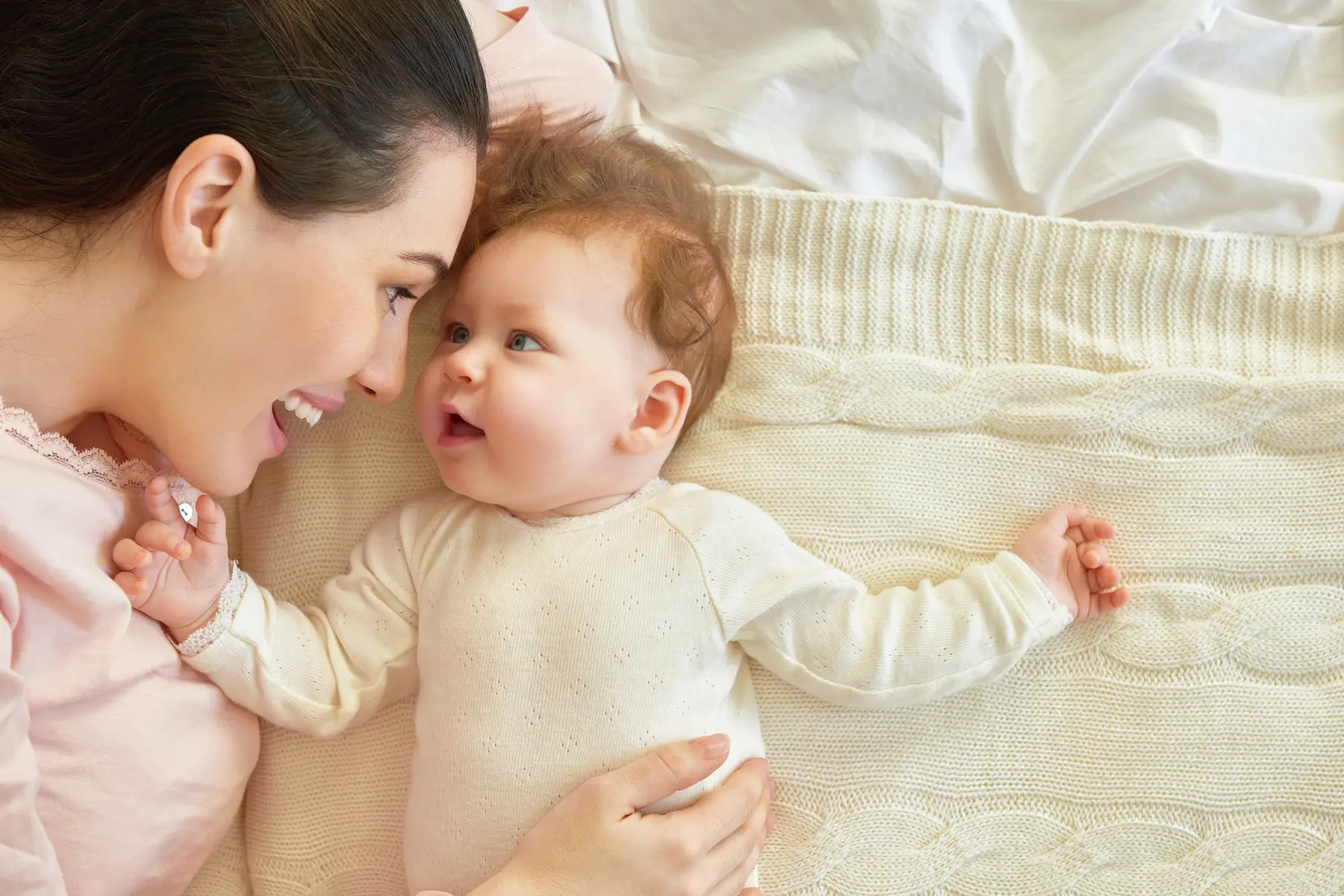
How long your children can remain as beneficiaries on your medical aid depends on the medical scheme and the plan you are on. That said, all schemes have to cover child dependents at the child rate until they turn 21. However, after that, the scheme can start charging the adult-dependent rate.
With this in mind, it is best to speak to your medical aid broker to discuss your family’s specific medical needs. They should be able to offer advice on the benefits you would need and help you decide on the best option for your family.
Financial support for accessing healthcare in South Africa
South Africa’s two-tiered healthcare system means that children either receive healthcare through private, paid-for medical insurance or (mostly) for free from the government. As mentioned, any payments are measured on a sliding scale that is dependent on household means.
Taking your child to see a pediatrician in South Africa
In South Africa, pediatricians work in both the private and public sectors. In the private sector, your child will typically need a referral from their family doctor to see one. Generally speaking, GPs treat children for common complaints. For anything more serious, they may refer them to pediatricians for further care.
Your relationship with your pediatrician will last for years. To help a doctor fully understand your child’s full medical history, you can give them consent to access your child’s electronic health record through the health IDs provided by many of the medical aid companies. This allows the doctor to access past health history, health plan benefits, blood test results, and to write electronic prescriptions and referrals to other healthcare professionals and more. Ultimately, this gives your child the best care possible.
Routine childhood check-ups in South Africa
In its approach to children’s healthcare in South Africa, the government emphasizes the importance of the first 1,000 days in a child’s life. Tools such as the Road to Health booklet support this. The booklet is designed to keep track of children’s healthcare needs. It is available free of charge for all babies born in South Africa at public or private healthcare facilities.
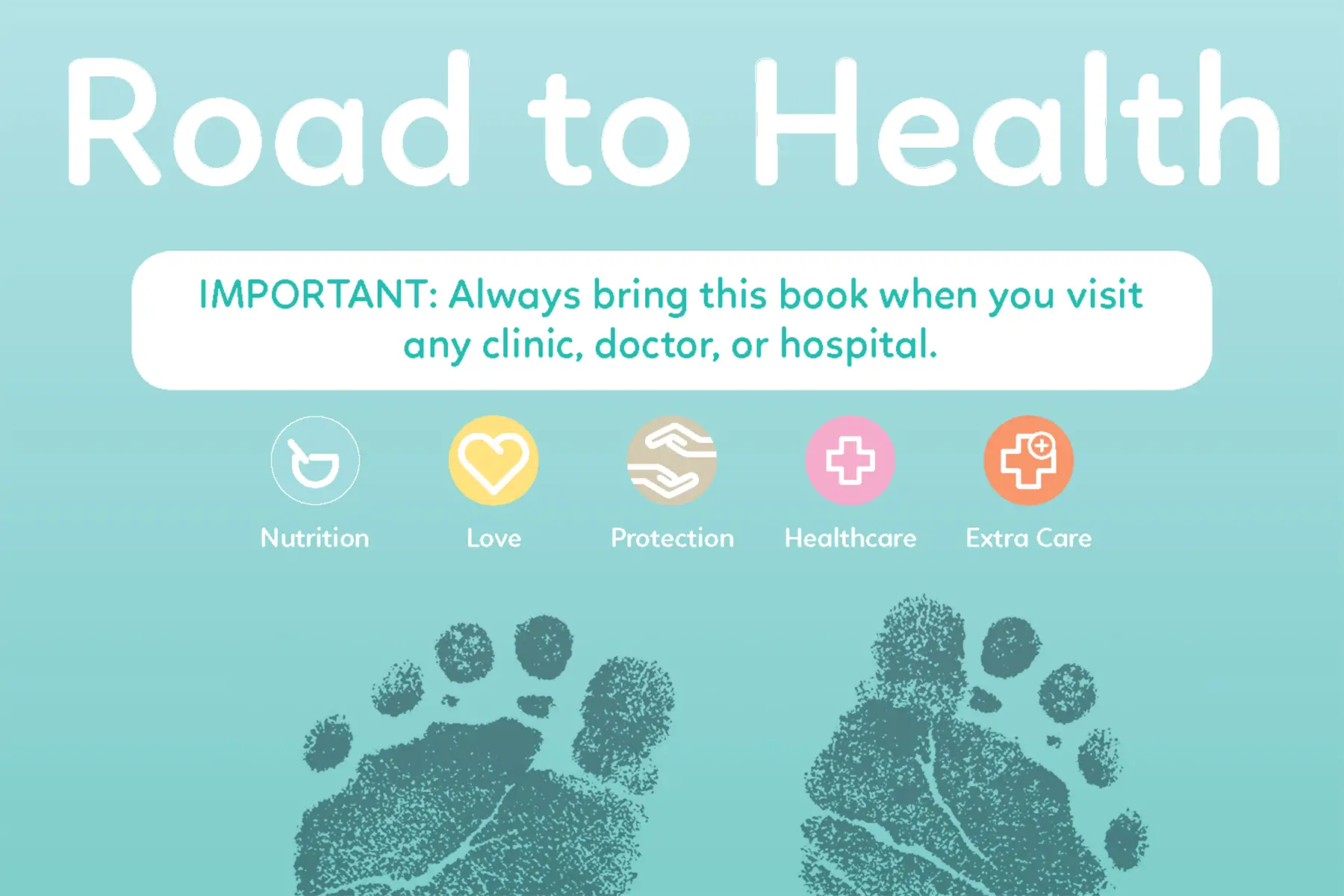
It contains everything parents need to know to help their child thrive. They can also use it to keep a record of their child’s growth and development milestones.
In the private sector, your GP will also advise you on check-up requirements, which insurance typically covers.
Vaccinations for children in South Africa
Immunization protects young children against potentially life-threatening illnesses such as tuberculosis, polio, hepatitis, and measles. In South Africa, parents and caregivers are encouraged to protect their children by making sure that they have all their required vaccinations at the right time. This is free in all public clinics throughout the country.
There is no legal requirement to vaccinate your child if you live in South Africa. However, you may struggle to enroll your child at school if they have not been vaccinated, as most South African schools ask for proof of immunization.
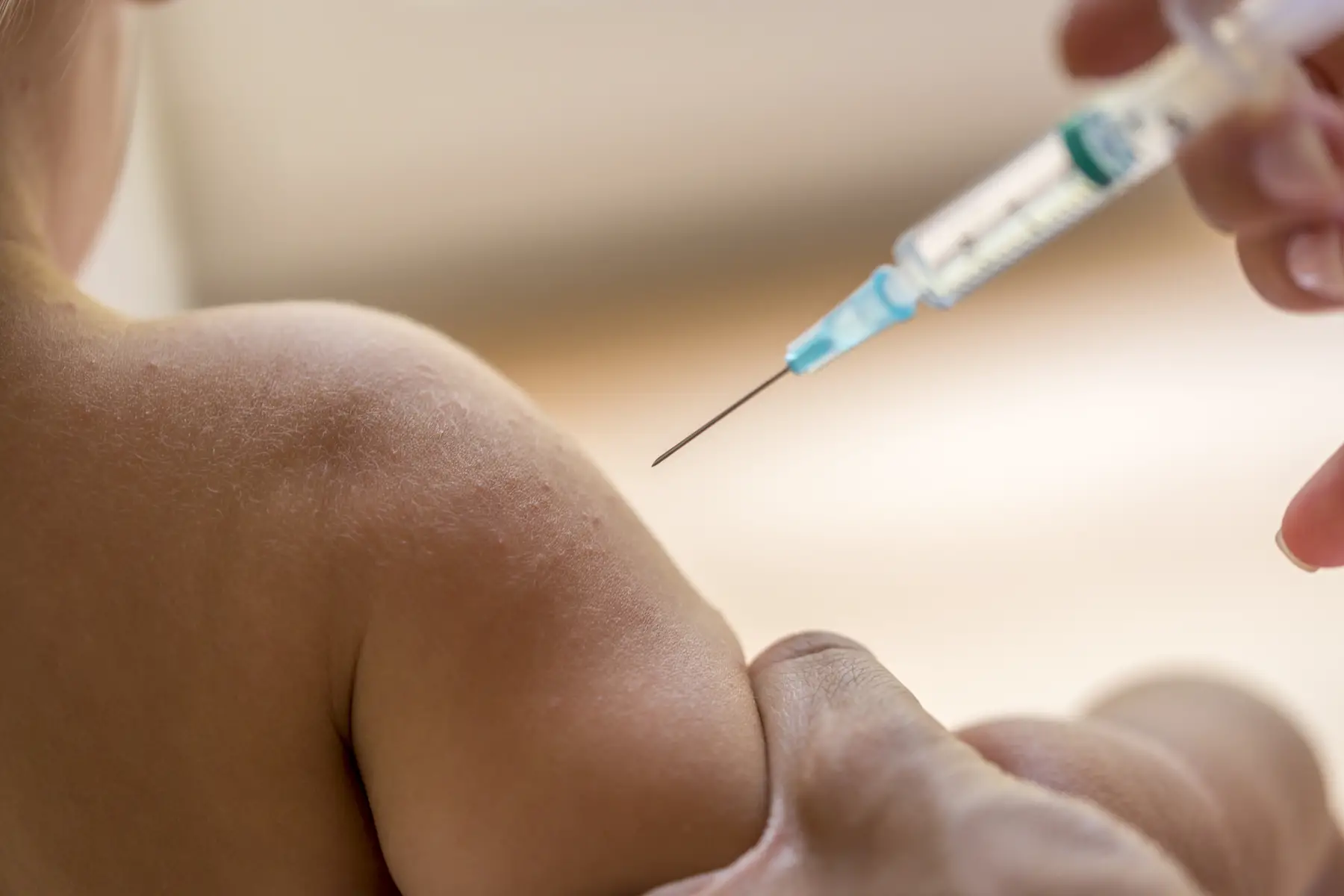
In South Africa, certain vaccines are provided free of charge at state facilities. The first vaccinations are given at birth, against polio and BCG anti-tuberculosis. More vaccines then follow at 6, 10, and 14 weeks; then at 9 and 18 months of age, and later at the age of 6 and 12. The essential ones are offered free as part of the government program, and parents can opt to pay for the others. You can read more about this in our article about vaccinations in South Africa.
Taking your child to see a doctor or specialist in South Africa
With the exception of emergency care, the first port of call for your child’s health concerns is usually your family doctor or GP. You will need to register with your GP as soon as possible after arriving in South Africa, or when your child is born. Then, if necessary, the GP can refer your child to a relevant specialist. This is typically covered by your medical insurance.
Children’s hospitals in South Africa
There are only three specialist public children’s hospitals in Sub-Saharan Africa, and two of these are in South Africa:
- The Red Cross War Memorial Children’s Hospital – Cape Town
- Nelson Mandela Children’s Hospital (NMCH) – Johannesburg
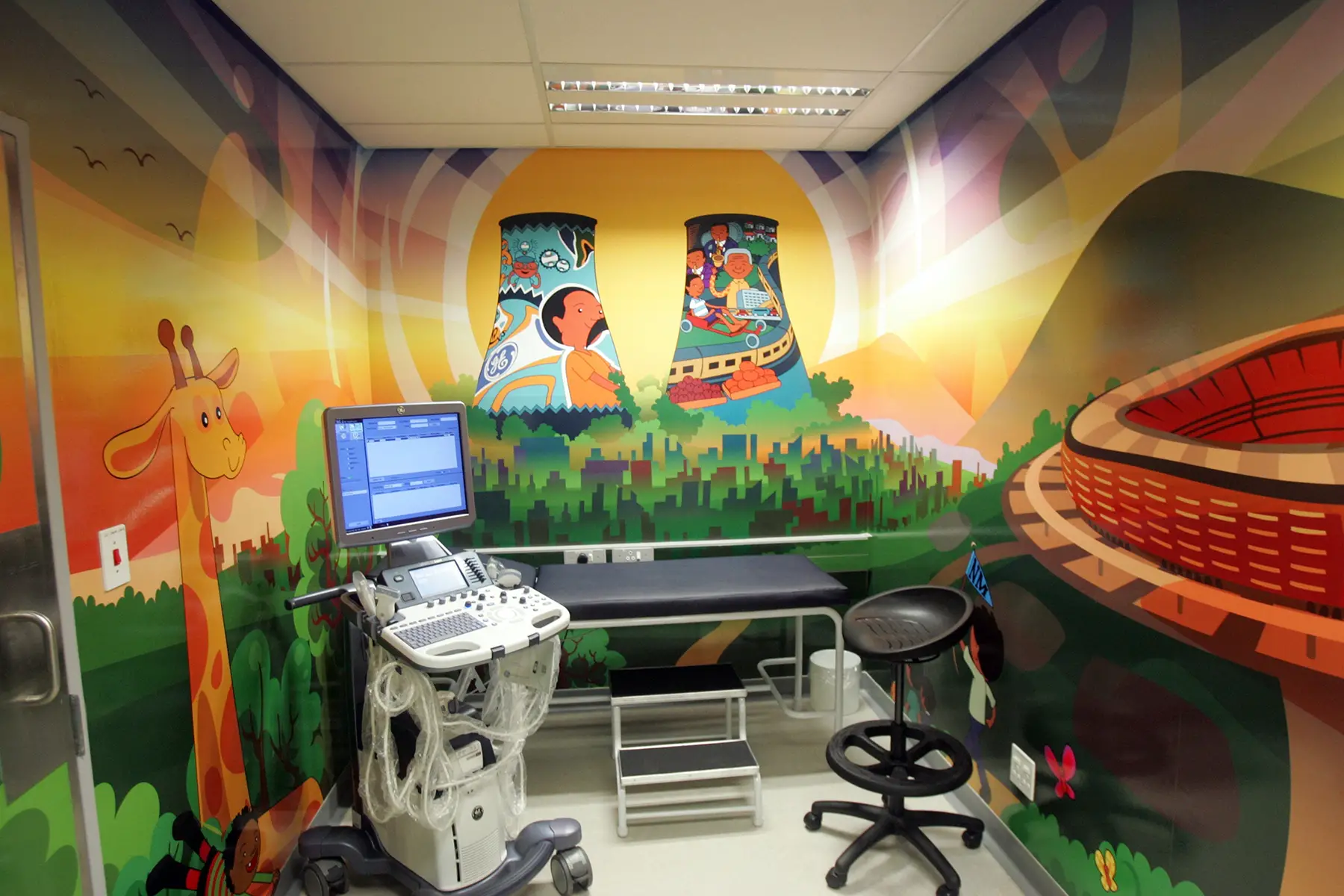
Other hospitals throughout South Africa have dedicated children’s wards. These include:
- Academic hospitals – usually attached to universities, these hospitals carry out medical research and offer the most advanced, specialist care
- Teaching hospitals – also attached to universities and educational institutes, these centers provide training for nurses. They also offer specialist treatments and interns may accompany doctors during procedures.
- General hospitals – these offer standard but very good care for less specialized problems
These include:
- The Children’s Hospital Trust – Cape Town
- Chris Hani Baragwanath Hospital: O.P.D (Children Cancer Ward) – Johannesburg
- KwaZulu-Natal Children’s Hospital – Durban
- Life Fourways Hospital: Paediatric Ward – Johannesburg
- Netcare Sunninghill Hospital: Paediatric Ward – Johannesburg
- Rahima Moosa Mother and Child Hospital – Johannesburg
Dental care for children in South Africa
Dental and oral healthcare services for children are offered at different primary healthcare facilities throughout South Africa. Parents need to check with their nearest clinic or hospital to see if these services are offered by the facility; or if they need to be referred to a facility that does.
While medical aid schemes do offer top-quality private care on most options, dental care is not always part of standard healthcare plans. In fact, in some cases, your annual premiums rise significantly if you choose to add it. Furthermore, depending on the level of cover you have subscribed to, schemes may only offer benefits for basic or specialized dentistry.
Your child’s first dental visit is recommended by one year of age, or within six months of their first tooth coming in. The first visit often lasts 30 to 45 minutes. Depending on your child’s age, the visit may include a full exam of their teeth, jaws, bite, gums, and oral tissues to check growth and development.
Some of the main health insurance companies that provide dental coverage for children in South Africa include:
Children’s mental healthcare in South Africa
Mental health is an essential part of children’s healthcare in South Africa. Yet it is an area of care that is neglected and under-resourced, with a shortage of mental health practitioners and lack of priority care.
While prevalence data is limited in South Africa, it is estimated that globally, around 10 to 20% of adolescents experience mental health conditions such as depression, anxiety, and alcohol use disorders. Moreover, suicide is the third leading cause of death in older adolescents, aged 15 to 19.
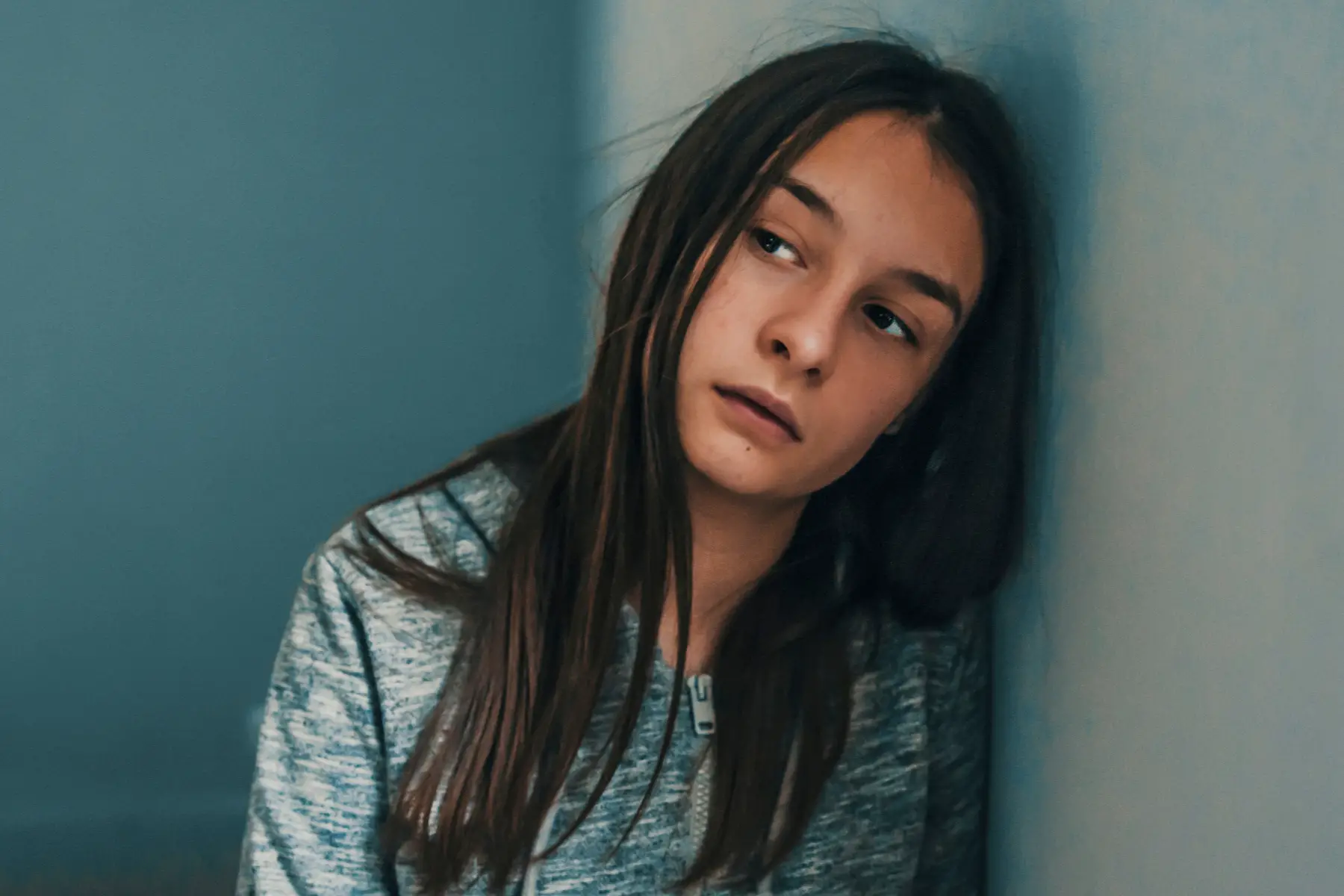
If you have concerns about your child’s mental health, the first step is to discuss this with your GP or healthcare practitioner at a health clinic. They can offer advice and provide a referral to a mental health professional.
Primary healthcare facilities provide basic health services to everyone, including young children and adolescents. And in most cases, Prescribed Minimum Benefits (PMB) in private medical aid policies will cover either in-hospital mental health treatment or out-of-hospital mental health treatment, including psychological therapy sessions.
Preventative healthcare for children in South Africa
Preventive care helps to detect or prevent serious diseases and medical problems before they can become major. Annual check-ups, immunizations, and flu shots, as well as certain tests and screenings, are a few examples of preventive care. These are offered as part of free public sector care and are covered by private medical aid schemes.
Useful resources
- Government of South Africa – provides a list of health associations and societies in South Africa
- MedicalAidE – provides a list of medical aids in South Africa
- Government of South Africa – offers a link to the child immunization schedule
- parent24 – provides a detailed immunization schedule by age
- SADA – the official website of the South African Dental Association










